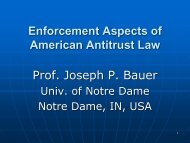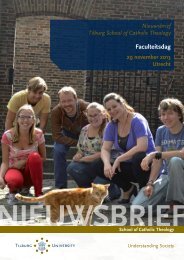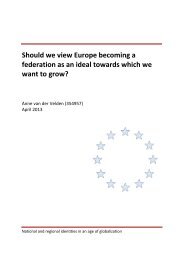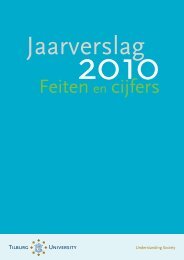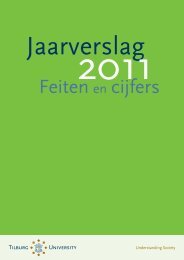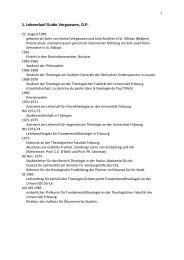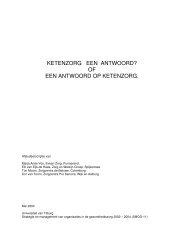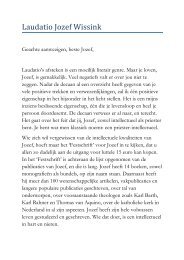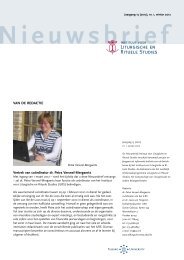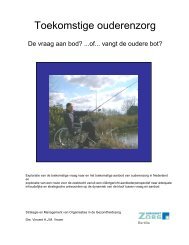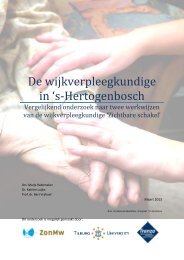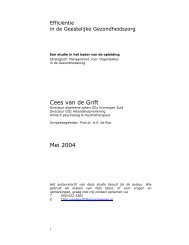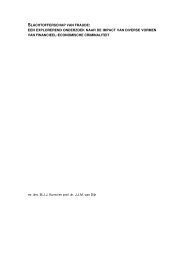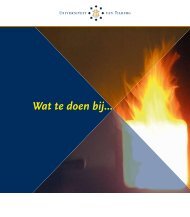Here - Tilburg University
Here - Tilburg University
Here - Tilburg University
You also want an ePaper? Increase the reach of your titles
YUMPU automatically turns print PDFs into web optimized ePapers that Google loves.
Author and presenter<br />
Kuchenkova, Anna; Russian state university for the humanities<br />
Title<br />
Analysis of causes by means of two logical – combinatorial methods: QCA and<br />
JSM-method<br />
Abstract<br />
The aim of the paper is to examine two non-statistical methods of causal<br />
relation analysis. First of them, QCA is an approach (introduced by C.С. Ragin in<br />
the late 1980-s), including several techniques of formalized comparative analysis<br />
for small- and intermediate-N research designs. Second, JSM-method is a<br />
method of automatic hypotheses generation in intelligent data analysis, that is<br />
used for analysis of respondents’ opinions (introduced by V.K. Finn in the early<br />
1980-s).<br />
Both methods have a lot of in common, though they were devised<br />
independently at the same time. Firstly, they are non – probabilistic methods,<br />
based on mathematical logic (Boolean algebra, fuzzy set, predicate logic).<br />
Secondly, they have the same epistemological foundation - ideas of J.S. Mill (his<br />
“method of agreement”, “method of difference”, “joint method of agreement and<br />
differences” are formalized in QCA and JSM-method). Thirdly, they imply the<br />
same interpretation of causality as a combination of necessary and sufficient<br />
conditions that lead to a certain output. Fourthly, these methods are labeled as<br />
formalized qualitative methods; which combine elements of quantitative and<br />
qualitative research. From the one hand, these methods imply analysis of rigidly<br />
structured data, description of objects through a set of variables. From the other<br />
hand, these methods implement inductive strategy of data analysis: individual<br />
cases are examined in order to find out similarities and differences, empirical<br />
regularities. So it is a process of generalization, during which hypotheses are not<br />
testing, on the contrary, they are generated, what accords to the logic of<br />
qualitative research. Finely, QCA and JSM-method are intended for discovery of<br />
interconnection between values of different variables. They constitute a special<br />
group of methods among the methods of causal relationship analysis.



